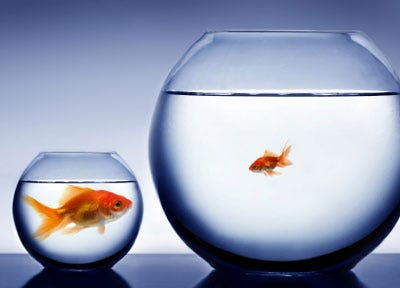“We have a system of education that is modeled on the interest of industrialism and in the image of it. Schools are still pretty much organized on factory lines — ringing bells, separate facilities, specialized into separate subjects. We still educate children by batches.”- Sir Ken Robinson.
This article is different from the ones I’ve written earlier. This article will be partly written by you and read by me.
Let’s start with a question. What is creativity?
Once you’ve thought of the answer. Take a look at the image below:
What does this look like?
Chances are you thought it was a hat. What if I told you that it’s an elephant?
This page is from one of my favorite books, “The Little Prince”. The book revolves around how as we grow up, we lose our ability to be creative. We stop enjoying the little things and we lose our inner child.
Why does this happen?
Comparison- Last week, I was struggling with writing as I was constantly feeling this article is not good enough. I was comparing myself to others. As a result, my creative flow was deterred and I was unable to publish an article. Creativity cannot be compared. You can only share your creativity with the world, some might see it as a hat while some might actually see the elephant.
Perfectionism- As we grow up, we start chasing perfectionism. With children to we start grading their creativity. We start putting them in a box and producing factory workers. As a result, creativity is lost and what is produced is a mass factory product.
What can we do about it?
Process vs. Outcome- We focus so much on the outcome that we forget about the process. We need to realize that the outcome does not need to be perfect, the process needs to be worked upon. When we are appreciating a child’s work, remember to appreciate their efforts and not just the outcome. Say, “ I liked how you used big words in the poem, or the strokes on this painting are so consistent.”
Celebrating work- Remind the child: The only person you need to compare yourselves with is the person you were yesterday. Sometimes kids compare their work with others and start feeling overconfident or underconfident. They then start feeling jealous and lose track of why you started in the first place. This is common during award ceremonies too. Instead, we should find ways to celebrate every student and their individual. Post examples of work from students from every level. Remember everyone is an artist. Saturday Art Class is celebrating every child with their
Set goals- Goals help us compare our own work with ourselves. For example, if I want to learn how to play the piano or I want to write a poem. A goal I can set is “ I will learn the basic piano keys this week or I will think about what I want to write about this week.” This way we have a way to measure our creative process. Setting small goals leads to easy wins.
Check Assessments- So how do we assess creativity then? Trick question. We don’t. Creativity needs to be celebrated. Imagine a child putting their heart a soul into a painting only to receive a Grade C? Chances are that child will never paint again. But, if we do not assess it a child may take an art class for granted. The goal is to find a middle ground where instead of assessing through grades we focus on celebrating through constructive feedback.
Remember, creativity comes in different forms, shapes, and sizes. Let’s encourage our children to think outside the box rather than showing them what the box is.
What’s your take on creativity? Let me know and I would love to share it with everyone!










